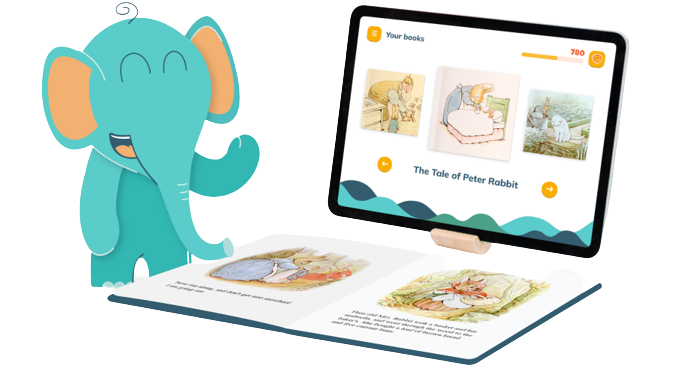How to Set Your Kindergartener up for Reading Success
Studies show parent support in Kindergarten can make a huge difference in your child's reading growth. Here's how.
.png)
Studies show parent support in Kindergarten can make a huge difference in your child's reading growth. Here's how.
.png)
So you blinked… and your baby is suddenly in Kindergarten. Congratulations! This is an incredibly exciting milestone, but both parents and children can experience anxiety around all that happens with reading during this first year of elementary school.
The great news: parent support in Kindergarten can make a huge difference in a child’s reading growth1. You just need to learn a few simple, quick “Reading Truths” to help you understand what your Kindergartener needs from you most.
What your child does (or doesn’t) master in Kindergarten is foundational for literacy growth throughout the rest of your child’s school career and, by extension, their lifelong literacy abilities.
That’s a lot of pressure, so first things first: your child doesn’t need to go into Kindergarten reading. Sure, some of their classmates will. And if your child is already decoding words and enjoying beginning readers, that’s wonderful. But...
It’s more important that a child have good foundational skills
before they start reading than how early they start reading.
.png)
If you’re considering using Ello for your new Kindergartener, this message is for you. I don’t want to rain on anyone’s reading parade, but if your child can’t quickly and accurately tell you the sound(s) each letter makes and hasn’t started blending consistently, they aren’t quite ready for Ello.
And that’s okay! Ello will still be here whenever your Kindergartener is ready. The last thing we want to do is make reading feel “too hard” or like a chore. But if your child is ready to start reading right now, an Ello subscription is a great way to make direct, explicit reading instruction at home feel fun and joyful!

Young children love to learn, and they do that best through fun and play. When literacy practice feels like a chore, almost no 5-year-old will feel excitement around reading.
Meeting your child where they are in their early reading journey and practicing those skills in a fun way nurtures positive reading growth, skills, and attitudes in the long term.
.png)
So, where are they this year? In a world of BIG cognitive transitions that will allow them to take the spoken English that they’ve already mastered and see how we encode that with writing. Here’s how you can help with that process:
Step 1: Being aware of and manipulating sounds in words
Step 2: Noticing, thinking about, and working with the individual sounds in words
Step 3: Understanding the sound(s) each letter symbol makes and how they blend together
.png)
One of the most important things you can do for your Kindergartener’s reading growth is something you’ve been doing since day 1: talk to them.
The more you talk to your child throughout the day, the better prepared they are to learn to read2. Use real-world vocabulary and sentences that you would use with adults. Their not-so-little brain is already 85% developed and will take all their knowledge of spoken English into their reading life.
Then, during read-aloud time, sprinkle these fun ideas into your routine to show your child just how far they’re coming with reading:
And as your Kindergartener shows signs of being able to decode words and tackle books, you can add Ello as the perfect resource to help them develop the literacy skills, persistence, and positive attitude every parent wishes for their young reader.
.svg)
1 Frank, N., Schneider, W. (2017). Home learning environment and development of child competencies from kindergarten until the end of elementary school. Contemporary Educational Psychology, 49, 263-274.
DOI: 10.1016/j.cedpsych.2017.03.006.
2 Olivia N. Saracho (2017) Literacy and language: new developments in research, theory, and practice, Early Child Development and Care, 187:3-4, 299-304,
DOI: 10.1080/03004430.2017.1282235.